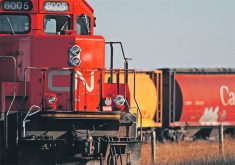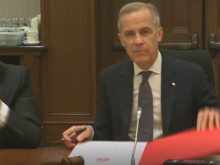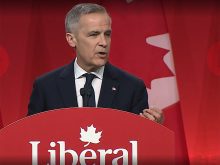REGINA — Saskatchewan’s decision to pause collecting the industrial carbon tax has met with approval but also questions about where the province will find the $431.5 million the Output Based Performance Standards (OBPS) fund was to contribute to this year’s budget.
Premier Scott Moe announced last week the province will be carbon tax-free as of April 1.
“What we’re doing here today is really taking our cue from federal leaders,” he told reporters.
Read Also

StatCan stands by its model-based crop forecast
Statistics Canada’s model-based production estimates are under scrutiny, but agency says it is confident in the results.
Prime Minister Mark Carney previously announced the consumer portion of carbon pricing would end the same date, but has not said what he would do about large emitters. Conservative leader Pierre Poilievre is promising to end both.
Moe said the removal of the tax from all SaskPower bills would save hundreds of dollars for farms, families, businesses and industry. He said those bills are the one place that people see the silent, or hidden tax, because it was itemized, but they didn’t see it on fuel and groceries.
“In taking the lead on the removal of this harmful tax we hope all federal leaders will support our position and allow the provinces to regulate in this area without imposing the federal backstop,” he said.
Saskatchewan had already cut carbon pricing on SaskEnergy bills last year after the federal government announced carve outs for those who heated their homes with oil.
Crown Investments Corporation minister Jeremy Harrison said families have saved over $400 on their bills as a result.
Moe said Saskatchewan already produces some of the most sustainable products on earth. There is a net zero oil operation and a net zero copper mine under construction. Studies at the Global Institute for Food Security have shown a far lower carbon footprint for crops grown in the province compared to competitors.
The government said its decision will allow people to confidently make investments and increase production.
In the meantime it will consult with industry on the future of the OBPS system.
The Saskatchewan Association of Rural Municipalities (SARM) said it supported the government’s decision. President Bill Huber said it would make rural Saskatchewan more competitive.
“By eliminating the industrial carbon levy the province is taking a crucial step to reduce unnecessary costs for our municipalities and agricultural producers,” he said.
SARM advocates for environmental policies that recognize the challenges and solutions in rural areas. It also wants made-in-Saskatchewan approaches.
The Saskatchewan Cattle Association said producers rely on electricity to operate their farms and removing the tax will help them save.
“Increasing costs for producers is never an effective way to improve environmental outcomes,” said chair Chad Ross. “The beef we raise here in Saskatchewan has one of the lowest carbon footprints in the world, and that progress was achieved without a carbon tax.”
The Western Canadian Wheat Growers also commended Moe’s action, saying it would provide critical relief to farmers dealing with uncertainty and instability.
The organization called it “a lifeline for farmers who have been disproportionately burdened by rising input costs and shrinking margins, particularly in the face of tariffs and federal policies impacting their competitiveness on the global stage.”
The opposition NDP questioned how the provincial budget is balanced without the OBPS fund. It supports the removal of the tax, which it called a Sask. Party slush fund, but said it also leaves a gaping hole in the province’s revenue.
Contact karen.briere@producer.com


















